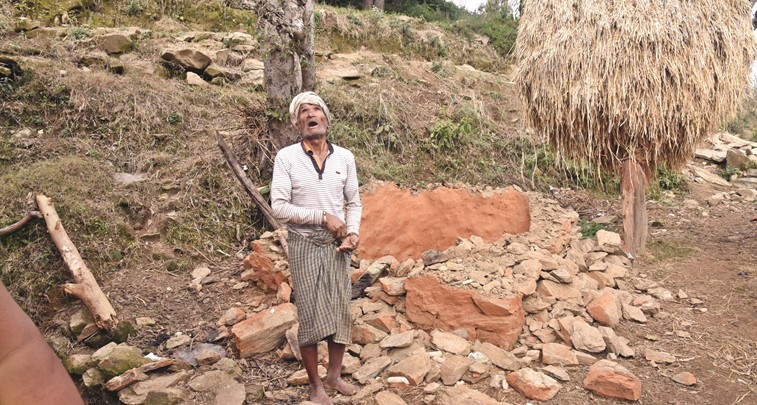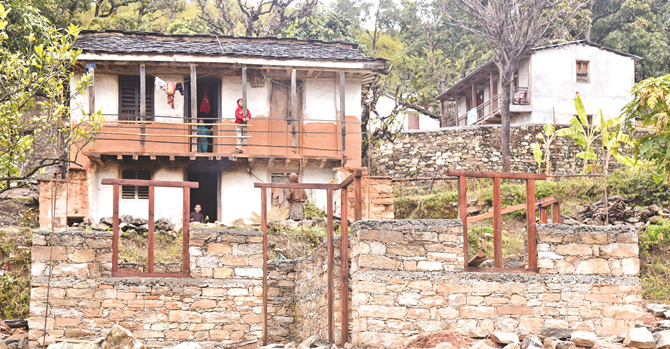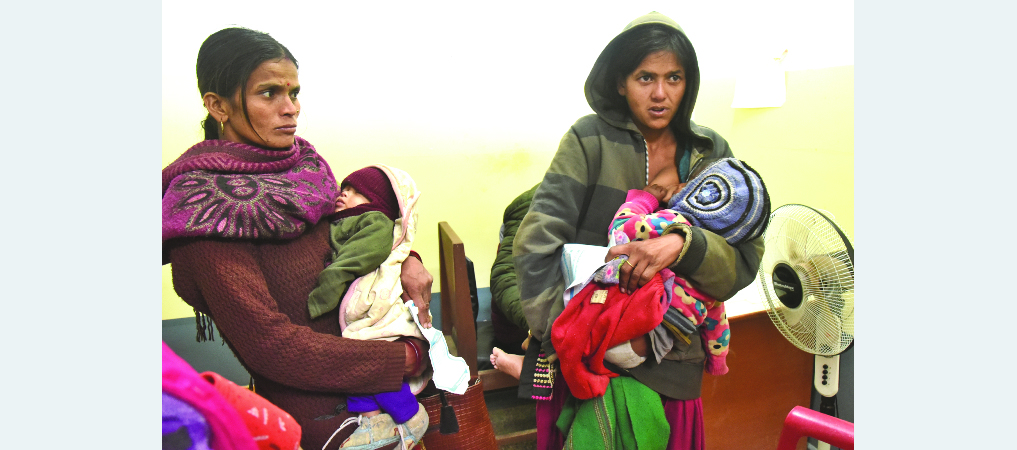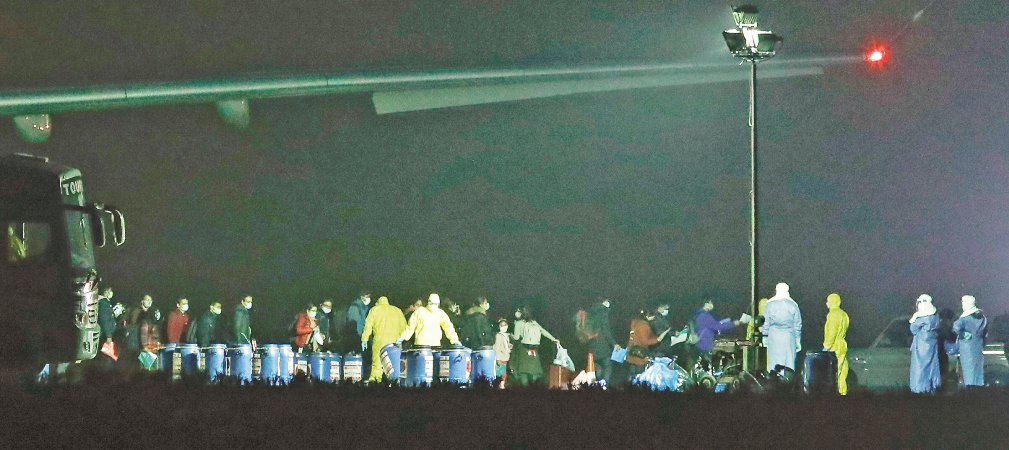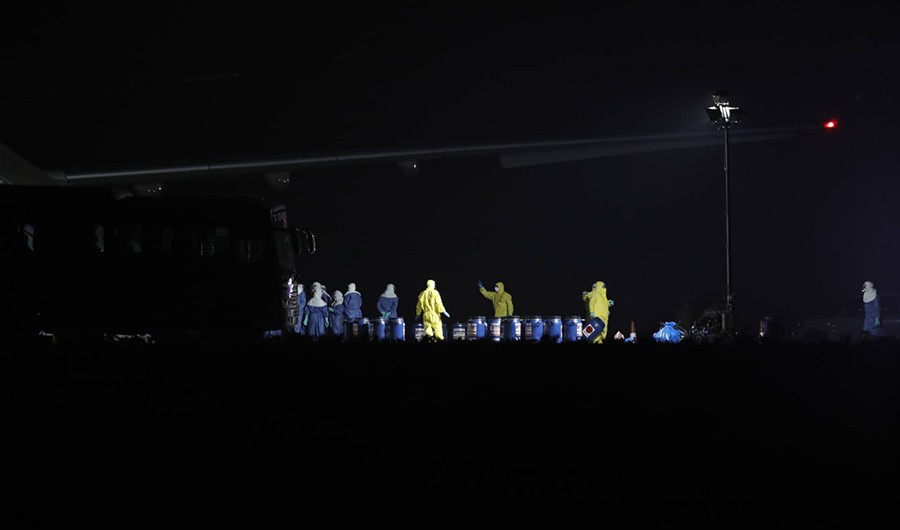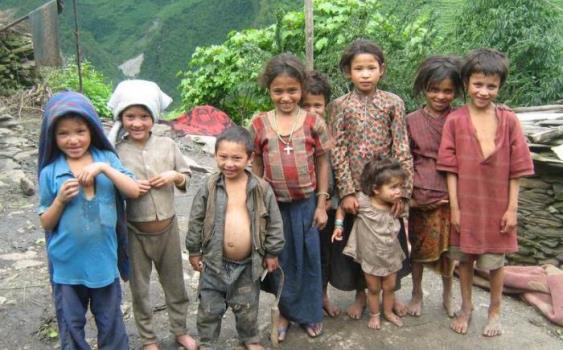PM’s successful transplant generates high hopes in medical circle, public

By Ajita Rijal
Kathmandu, Mar. 15: The second successful kidney transplant of Prime Minister KP Sharma Oli at the Tribhuvan University Teaching Hospital (TUTH), Maharajgunj has sent a positive message to the public that such a complex surgery can be carried out within the country. It has also enhanced the confidence level of all Nepali doctors and government hospitals.
At a time when many political leaders go abroad for medical treatment at huge expenses on taxpayers’ money with government bearing the costs, PM Oli opted for treatment at home at our own TUTH. PM’s choice has further raised the level of trust and faith in the medical services that the poor and underprivileged are getting on a daily basis at the TUTH.
According to health experts, the PM’s move of undergoing such a critical kidney transplant in Nepal has given a clear message to VIPs and VVIPs to not seek treatment abroad at huge expenses for illnesses that can be treated within the country.
Sharing the happiness on the successful renal transplantation of PM on behalf of the medical team, Prof. Dr. Uttam Kumar Sharma said that it was a matter of pride and happiness for the entire institute to successfully carry out PM’s transplant at TUTH. “The PM chose to treat himself at home in Nepal. This was a challenge as well as an opportunity,” he said.
Public trust in Nepali doctors and health facilities has been boosted as PM sought treatment inside the country, said Dr. Dharma Kanta Banskota, Vice Chancellor of Tribhuvan University and former chairperson of Nepal Medical Council. PM’s treatment has also heightened the standard of Nepali health facilities, added Dr. Banskota. “Our PM has provided historical opportunities for Nepali doctors and hospitals,” said Banskota.
The PM’s decision should now compel the other leaders and high-profile people to think twice before they decide to go abroad for medical treatment, said Dr. Dipendra Pandey, Chairman of Government Doctors' Association of Nepal (GODAN).
Likewise, PM’s option of treatment at home has also greatly boosted the morale of the local medical experts, who are very competent and meet international standards, like that of any doctors abroad, so the expertise is already present at home with us. “In terms of knowledge, our medical team is well experienced; we need to be updated with the modern treatment facilities,” said Dr. Pandey.
“We are hopeful that the government will take some steps in improving the healthcare system across the country,” added Dr. Pandey. The main thing we need is sufficient manpower. The government must manage the essential manpower including doctors at all the health institutions, he added.
Challenges and opportunities
The PM’s critical transplant surgery became successful in Nepal and it has now created the prospects of improving the Nepali hospitals, said Dr. Krishna Adhikari, registrar at Nepal Medical Council.
Besides having competent physicians, our hospitals also need to be equipped with all necessary equipment, infrastructure and human resource.
For successful treatments, the hospitals need infrastructure, technology, equipment, medicines, lab facilities, nursing services and right medications, said Dr. Adhikari, adding the hospitals must have integrated facilities to provide any type of critical care, Dr. Adhikari added.
The PM’s transplantation at home has also generated positive message in the international circle. In the context when many people around the world are already benefitting from excellent eye care services from Nepal, now Nepal can be a destination for renal transplantation as well, said Dr. Adhikari.
With the PM’s choice, it will be eye opening for all the VVIPs who flew abroad even for general checkups and minor treatments, incurring millions in costs to the state coffers, opined health experts.
Millions of rupees have been doled
out to political leaders, influential personalities and bureaucrats in the last decade just for medical treatment which must come to an end.
For example, the dedicated beds and special cabin rooms established at Bir Hospital for the treatment of VIPs and VVIPs were left unused and vacant, while the same intended VIPs flew abroad from above the sky of Bir, sadly. The sophisticated and thoroughly equipped special cabin rooms at Bir Hospital will hopefully come into use and be occupied now, said Dr. Pandey.
Recent News

Do not make expressions casting dout on election: EC
14 Apr, 2022
CM Bhatta says may New Year 2079 BS inspire positive thinking
14 Apr, 2022
Three new cases, 44 recoveries in 24 hours
14 Apr, 2022
689 climbers of 84 teams so far acquire permits for climbing various peaks this spring season
14 Apr, 2022
How the rising cost of living crisis is impacting Nepal
14 Apr, 2022
US military confirms an interstellar meteor collided with Earth
14 Apr, 2022
Valneva Covid vaccine approved for use in UK
14 Apr, 2022
Chair Prachanda highlights need of unity among Maoist, Communist forces
14 Apr, 2022
Ranbir Kapoor and Alia Bhatt: Bollywood toasts star couple on wedding
14 Apr, 2022
President Bhandari confers decorations (Photo Feature)
14 Apr, 2022



